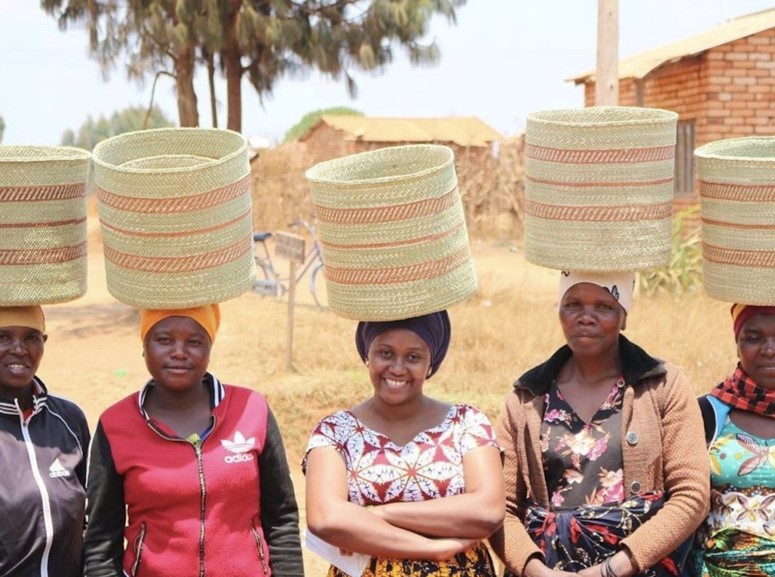Empowering Tanzania’s rural women through their hand-woven craft: How a company changed their lives
Post By Diaspoint | September 3, 2023

Each basket told a tale, a story of tradition and skill passed down from mother to daughter. Initially, it was more of a leisure activity than an income strategy. However, with the training they received from us, these women can now demand fair compensation for their craft.
Thirteen years ago, my Dutch friend asked me to find handmade products from Africa to give to her friends and associates as a legacy of craftsmanship by African women. One day, I walked outside the market in the sun and stumbled upon Iringa baskets, a staple of Tanzanian culture.
They stood out from the other objects like rare jewels – their appearance beautifully intricate. I showed my friend what I had found, and she quickly fell in love with them. The first time I held one in my hands, I felt a connection to the hands of the woman who wove it and to the stories whispered into its fibers. I loved the craftsmanship behind it but after purchasing several baskets, felt the materials could be improved.
Not one to sit idly by, I set out on a mission to find these skilled women. After much searching and inquiry, I came across one weaver with whom I shared the idea. To my delight, she rallied six other women, their hands eager to shape their destinies. Together, we embarked on a journey not just to enhance their weaving skills, but to weave a tapestry of change. We discussed a potential venture to create high-quality products for international markets and together, we set out to make our vision a reality.
Showcasing the rich background and story of each weaver behind the baskets
During our journey building the company, I discovered these women had been selling their beautiful baskets at such cheap prices it barely sustained them. It broke my heart to see so much hard work go unnoticed. I felt determined to ensure they received fair compensation for their efforts. We founded Vikapu Bomba, which translates to Beautiful Baskets.
Each female artisan now earns between 65 and 35 percent of the total revenue, depending on the product they craft. Each basket carries a unique story, carefully handcrafted by a rural woman of Tanzania. We decided to make the baskets more personal by attaching a small tag featuring a photo of the artisan, along with a short bio and how long it took her to make it.
Read More from original source
